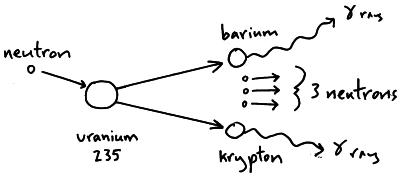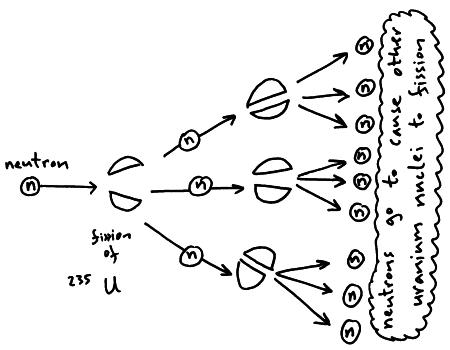Nuclear fission is when a large nucleus splits up into two lighter nuclei, this releases energy.
Two common substances used for fission are uranium-235 and plutonium-239. The majority of nuclear reactors use uranium-235.

Fission
- a neutron is absorbed by the uranium-235 nucleus
- the nucleus splits into two lighter nuclei (barium & krypton)
- 2 or 3 neutrons are also released
- energy is released (in the kinetic energy of the neutrons released & the gamma rays)

Chain reaction
The two or three neutrons released during fission can be absorbed by two or three other uranium nuclei. These spilt and release two or three neutrons each which in turn may initiate further nuclear fission, this is called a chain reaction.




